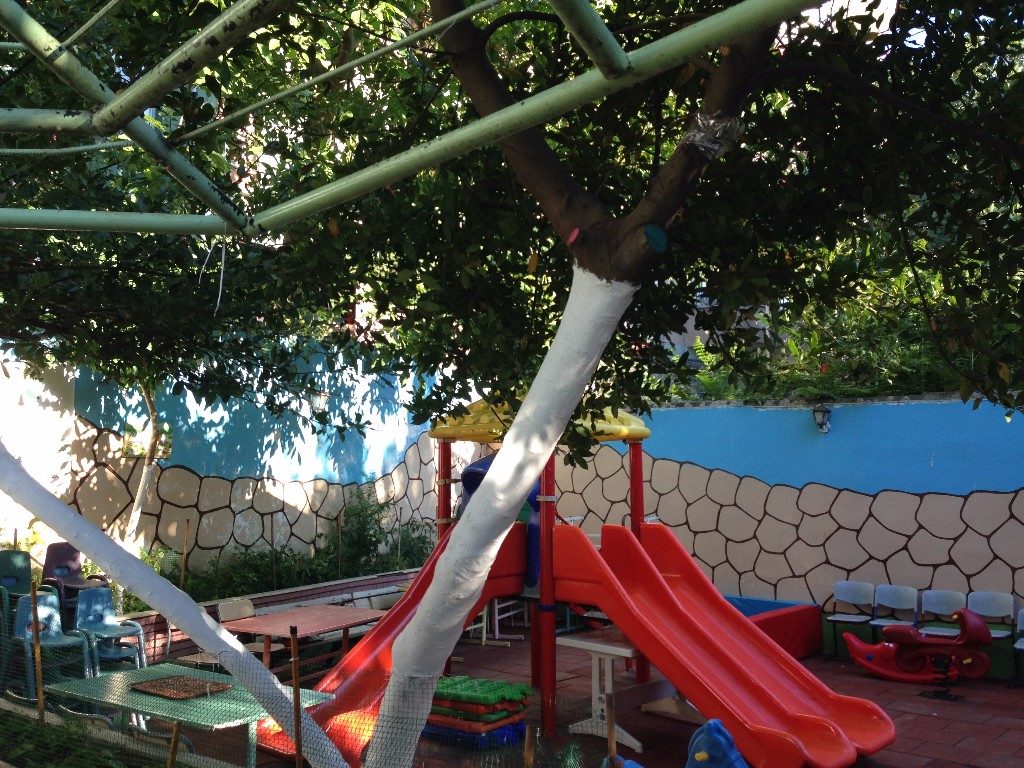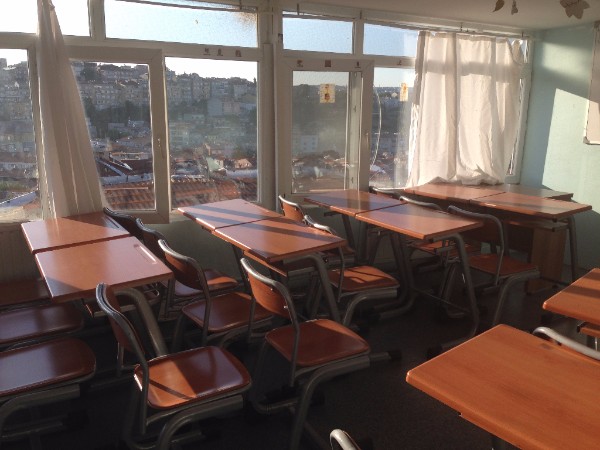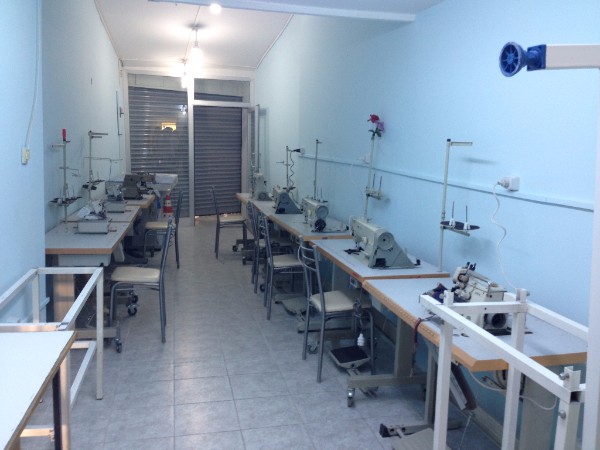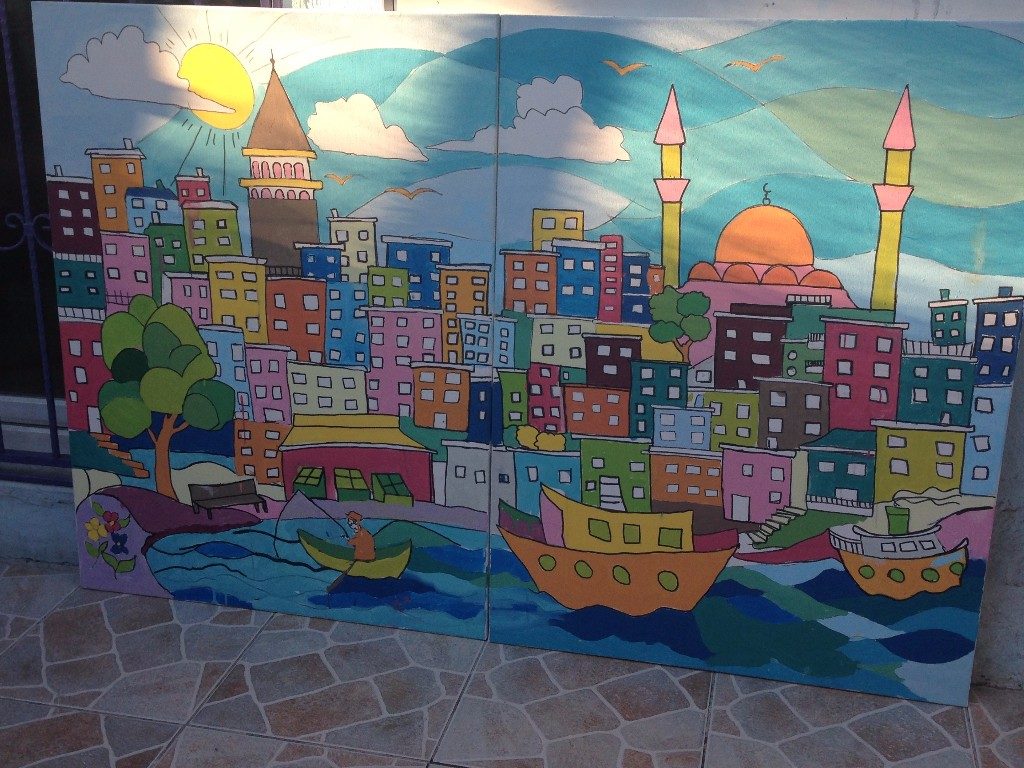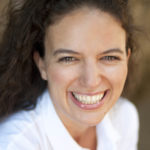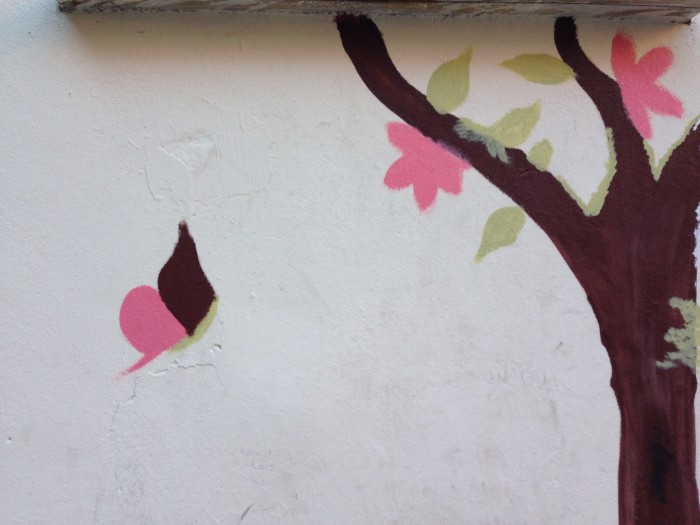
Inspiration is perhaps not the first word you would associate with Syria and Turkey at the moment – but out of devastation beautiful things sometimes arise. On Thursday, as part of the Mercator European Dialogue, I had the privilege of visiting a Community Centre and School set up for Syrian refugees in Istanbul. It was quite a day! And quite an experience.
The children have been displaced, lost their homes, and suffered the traumas of war, including many having witnessed their homes being destroyed and family members dying.
Both of these centers provide support and safe spaces for the children with inspiring results including a little boy whose home was destroyed and whose hair was burned in the fire moving from drawing pictures of war and destruction to happy pictures of flowers and homes in just 5 months. This kind of miracle is because of the love and safe space provided by the people who run these wonderful organisations which, so far, have been largely self-funded.
The events in Istanbul last week, obviously triggered some of the trauma again, both in the children and the adults, but one man told us that although the children were afraid and even he was afraid, it did not negate the past five years during which they had been safe in Turkey.
I was with a group of people some from think tanks, some from NGOs and one from the European Parliament as part of dialogues supported by the Stifung Mercator foundation. They asked how important some of the issues they spend their time discussing are? The answer came back that for now, the Syrians are more concerned with survival and meeting their basic needs rather than questions of citizenship and other matters that policy-makers are concerned with. It became apparent, however, that simplifying the process to register and other bureaucracy would, of course, help a lot – as would, anything that made it easier for them to get jobs.
Yusra Community Centre
Yusra Community Centre (outside wall pictured above) was set up by an Indian woman who runs community centers in Calcutta for street children. Moved by what what happening this side of the ocean, she came to Istanbul to put her experience to good use. On a daily basis in two small rooms on the ground floor of a house in the Balat neighborhood in Istanbul, she provides a safe space for children and women – many of the Children have been traumatized, and at the centre they are nourished most importantly perhaps with love and smiles and safety.
In the room next door, women in head scarfs are being taught Turkish and English and how to do the practical things they need to do to survive in this new landscape. Fiercely protective of her charges, and rightly so, the founder of the centre only lets women see into the room where the women are taught, explaining ‘They need to feel safe. This is their safe space.’
She is constantly asking the people to tell her what they need most. The women told her that what they miss is community – on Friday afternoon’s in Syria, they would go to their ‘grandfathers’ house’ where they would drink tea and talk. So, now, on Friday afternoons, the teaching room becomes ‘grandfathers’ house’ and the women get the space to talk to each other, share stories and advice.
Al-Nokhba School
Al-Nokhba School, is a little oasis of peace and tranquility nested in the corner of an otherwise bustling city. In the Fatih district, within walking distance from the community centre, the school is also largely self funded and run by a former Syrian businessman who used to work in construction. He bought a six-story house which was initially a temporary refuge and then converted it into a divine little school, warmly decorated with purple doors and a garden with slides and swings all under the shade of leafy trees (see photo below). The school serves 400 children a day in two shifts. It started with 200.
It has doctors, dentists and therapists who are mainly Syrians, along with a few volunteers. They are beginning to develop projects for adults also to help them with work, including a sewing workshop (see photo below).
Art is a big part of the curriculum and a helpful form of therapy for the children. In the wake of the attacks at the airport in Istanbul, with the help of an artist, the children painted a happy ‘get well Istanbul’ picture of the city (see below). The overall curriculum is based on the Syrian National Curriculum.
On the wall inside, I read that they have chosen to translate Al-Nokhba School as ‘Syrian Elite School’. I carefully asked why the choice of the word ‘Elite’ in the name. With a shy smile, the Founder explained that it was for the students’ morale. He wanted to make sure they felt that they were part of something good, getting the best eduction. And then he added that of course, ‘it’s not so good for funding’.
It seems like those who work and go to the school are the relatively lucky ones. When asked if she wanted to stay in Turkey or would prefer to return to a safe Syria, with tears in her eyes, she replied: ‘When you are in your own country, you can be rich and strong. When you are not, you are poor and homeless’.
A few issues facing Syrians
Both places say that they need more space to do the good work their doing. And one of the key issues facing Syrians in Turkey is an inability to find work. Some of the rules and systems in place do not help. Also, their papers (degree or high school certificates etc) are not trusted, even if they have them, as the institutions cannot verify them and there is a large black market in certified certificates which have been photoshopped.
The Turkish government is pushing for Syrians to be assimilated into Turkish schools which on one level makes sense. However, for many traumatised Syrian children, also having missed out on some schooling and with the language barriers, this is a tough transition to make. As importantly, making that move towards assimilation, can feel like giving up the hope of being able to, one day, return to Syria. Syrian school may be a transition.
Recovering from the trauma they have witnessed, setting up a semblance of a normal life with the possibility of finding work seems to be the primary issue facing Syrian migrants ‘on the ground’.
The next day, I facilitated conversations between around 35 academics, NGOs, think tank experts from numerous countries, pooling together their expertise and different understandings of the situation. We considered different eye-opening perspectives on the situations and routes to overcoming some of the obstacles in the way of finding a solution. Part of the beauty of the Mercator European Dialogues is that they bring together a wide mixture of people allowing them to have a different type of conversation, after having had a real-world experience of what the situation in life on the ground. It is a fantastic project.
p.s. to find out more about these organisations or to donate, visit:
https://www.facebook.com/yusracommunitycenter/
https://www.gofundme.com/becausetheyneed
